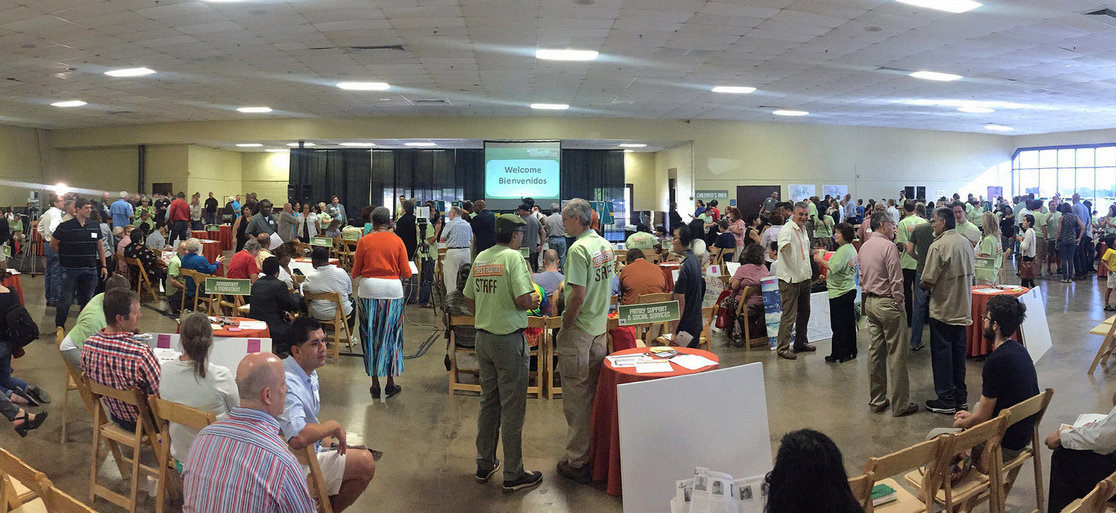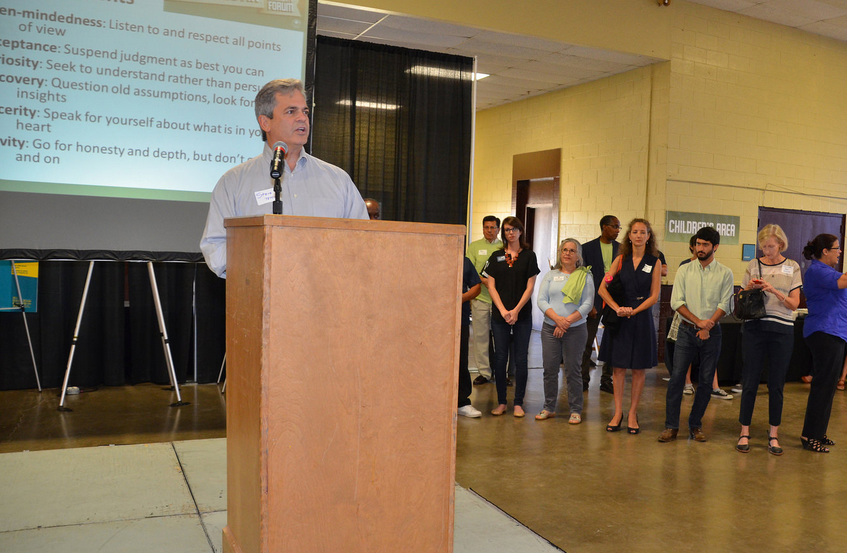Feedback from the Spirit of East Austin Community Forum has been overwhelmingly positive due in part to the dialogue focused on ways to create equitable economic and community development in East Austin. After September 12, a qualitative analysis team assembled and collected 1,990 Post-it notes to help determine next steps.
As part of our next steps, we will be scheduling community meetings to present the initial results and receive feedback to ensure they honestly reflect the community’s needs. The intention is to continue receiving ongoing input from the community while inviting stakeholders to volunteer for working teams to develop a set of community-based recommendations (i.e., projects, policies, and/or programs).
These working teams would be located in critical areas needing attention including, but not limited to, the following neighborhoods: Montopolis, Dove Springs, Colony Park, Rundberg, and Central East Austin among others. The working teams would not replace current neighborhood organizations or efforts. Instead, they would form parallel to and in collaboration with these groups to gather information and make recommendations. We want to move quickly to form our recommendations and want all input. We expect to have city staff, community members, and other experts to participate in these working teams. Satisfying a set of community-based attributes, each community team would be responsible for developing a set of recommendations that would fall into one of the following categories:
- Shovel-ready (up to 1 year): Some recommendations would focus on quick, “shovel-ready” projects that may have already received attention, for example, creating sidewalks to increase walkability.
- Fertile Ground (1 to 3 years): Additional work would focus on projects that require relatively minimal effort, but they have high impact on the community.
- Strategic (3 to 5+ years): Long–term investments that offer greater community impact and would be strategically focused on dynamic economic development.
Helpful links:
Spirit of East Austin Community Forum analysis (online, interactive presentation)
Spirit of East Austin Online Community Forum (You must log in to access, contribute)


